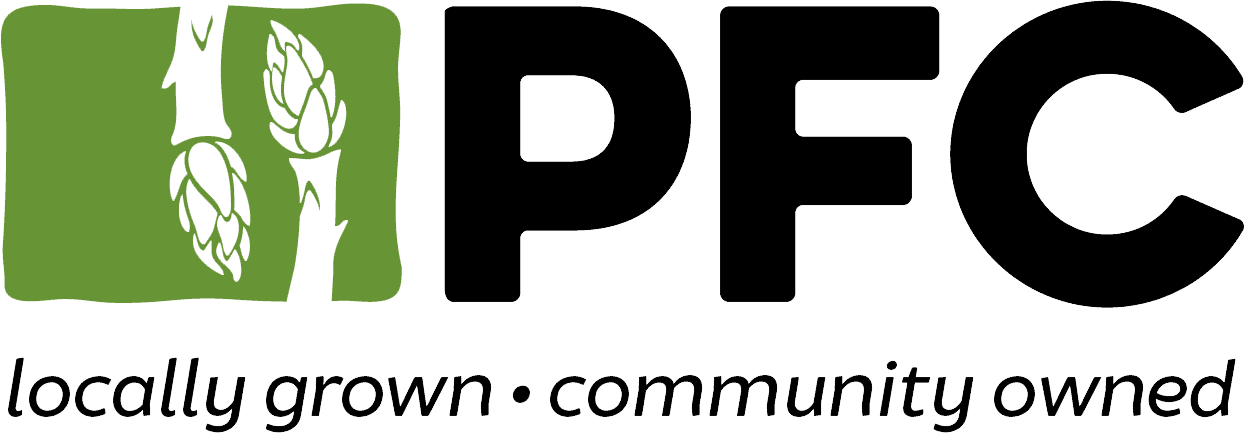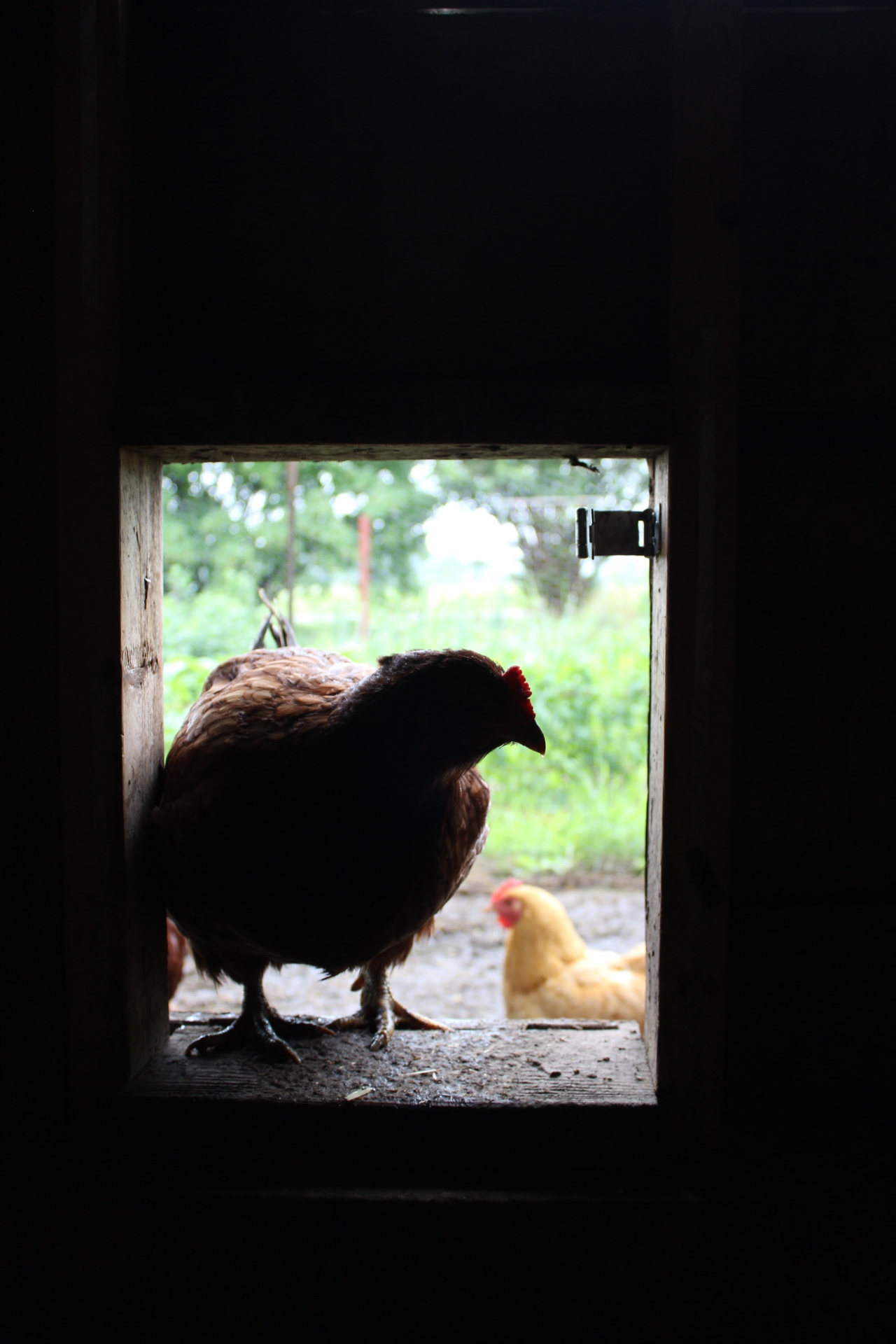NATURAL CYCLES FARM
"Our mission is to support our members by promoting sustainable agriculture through peer-review certification, grassroots networking, and advocacy."- www.cngfarming.org
THE VIEWS
On a particularly grey drizzly summer day, I found a certain stillness walking up a muddy earthen driveway. Greeting me at the top near the main barn are two familiar market faces, Pete Robertson and Lori Evesque. The two combined run what has come to be the production of Natural Cycles Farm, a local Michigan Certified Naturally Grown farm.
THE BASICS
Natural Cycles Farm has had two full years of growing seasons so far. The property itself was bought by the two in a farm auction, totaling in at 36 acres. The main house and barn, built in the early 1900's is the main production for jams, while the barn is used for the incubation of chickens. Lori hopes to have all heritage breeds one day, in specific the buckeye chicken. These chickens tend to have high yields in production, as it is a strong breed.
THE PRACTICE
We notice that Natural Cycles is refreshingly rugged in landscape, as Pete and Lori do all of the farming and harvesting on their own, with no help from tractors. This cuts down on on air and fuel pollution. The measures the two take to keep their acreage fuel, pollution, and pesticide free go above and beyond normal routine practices. With other larger commercial farms nearby, the two try to keep up-to-date with land owners on when and where the spraying of pesticides happen, as well as the wind patterns for the day, and mapping out runoff patterns from nearby farms. This helps them better shield their plants and animals from other farm practices that they do not consider Certified Naturally Grown (CNG)
Japanese Indigo in one of Lori's gardens. A particularly rare find in a Michigan garden.
THE FINALE
After the extensive tour, we are invited in for a slice of raspberry torte. The kitchen gave off some serious rustic farmhouse energy, both welcoming and busy in its own way. Gathered around the island, I can't help but feel at home as Pete and Lori serve up fresh slices of torte. I finished mine almost too soon. Behind us sits several empty jars, no doubt being prepped for canning those delicious jams that are sold at the Kalamazoo Farmers Market every Saturday morning and Thursday afternoon. Pete shows us a large jar full of the buckwheat used in the fields, dried and ready for at home use. I notice a few jars of Lori's garden indigo nearby as well. We slip our shoes back on, make our way back to the car, and head home. Between a quiet drive, the grey skies, and a full belly, I couldn't have asked for a more welcoming visit. A picturesque way to end the trip to Natural Cycles Farm.
Pete and Lori in a portion of their grazing pasture. They are conscious of growing a variety of natural grazing grasses to mimic what would be available to sheep in the wild.
In addition to chickens, Natural Cycles is home to geese, as well as Red Tunis, Merino, and a few cross-bred fiber sheep. These sheep are constantly being rotated to different areas for grazing, which help mimic a natural pattern, and help cut out parasite cycling that can happen from re grazing in the same areas. The sheep are used for wool fibers, as well as meat cuts.
Rows of tall buckwheat in-between planted crops. A natural water absorbing barrier.
THE CROPS & GARDENS
Walking out to the acreage used for crops and gardening, we notice long grass -like shoots between rows of different crops. Pete says that with predominately clay soil, heavy rains can cause an abundance of puddles, as clay takes longer to absorb moisture. To combat over-watering, the two plant buckwheat in rows to absorb a majority of the runoff. Buckwheat is a hearty plant, and a solid natural way to address these types of issues. Aside from the field, the garden is full of unique finds! As a prominent in the Southwest Michigan textile and dye community, Lori grows her own indigo to process and save for later use. This is something we have never come across in a farm visit before. She is an absolute wealth of information regarding sustainable practices for fiber and dyes. Also in the garden, are heads of cabbage, onion, and tons of flourishing raspberry bushes.
From farm to table. No doubt, these were the raspberries used in the torte.
THE CERTIFICATION
Natural Cycles Farm is a certified CNG farm. Certified Naturally Grown is a grassroots alternative to a Certified Organic certification. The main differences CNG focuses on are as followed:
Designed for family farms, as opposed to corporate and agribusiness farms.
Annual inspections conducted by other CNG farmers, or customers as a form of proper checks and balances.
NO synthetic pesticides, herbicides, fungicides, or GMO seeds; for livestock producers, no antibiotics or hormones.
To learn more about CNG practices, please visit the official website at: cngfarming.org






